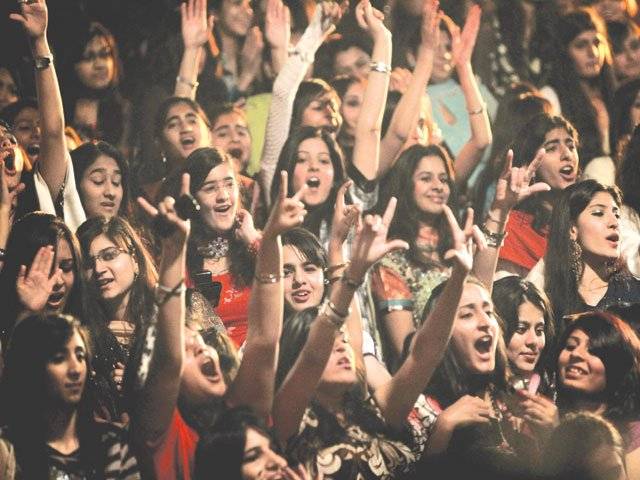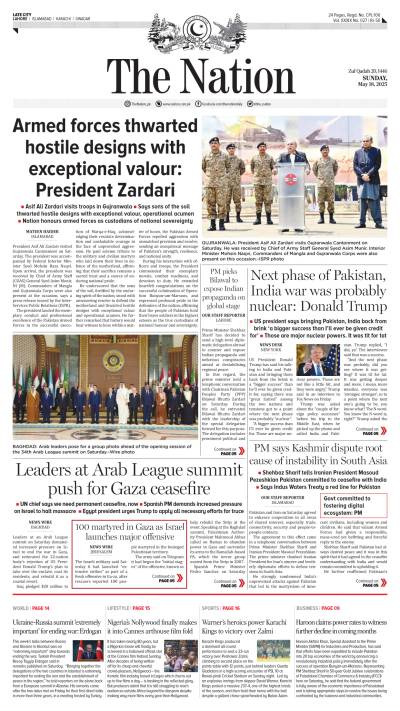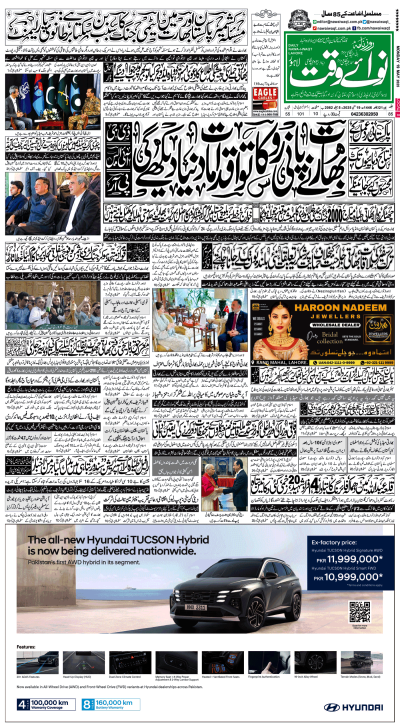KARACHI (AFP) - Gumby, a diminutive pony-tailed drummer, believes Pakistani rock music is vibrant enough to withstand pockets of extremism and shield society at large from Western fears of the Taliban. Ive been in the industry more than two decades and have seen Pakistani music rise, fall and rise again. Our culture is resilient, which wont allow the Taliban to take over our society, says the 34-year-old. Louis John Pinto, better known as Gumby, launched himself on the rock circuit as a drummer and percussionist while a teenager and has played as a session musician with all the major cult bands in the country. Pakistan has seen creeping conservatism for years. Extremists have blown up hundreds of music and DVD shops in the northwest. But hundreds of miles away in his compact studio in a multi-storey building in Clifton, Karachis poshest address, Gumby says the future of music is promising, with money and passion being injected afresh into the industry. Making music ones livelihood was thought to be a taboo for people here, but now parents themselves encourage their children to learn music, which shows we have a brighter future, he said. At one recent concert at an open-air amphitheatre in Islamabad, young middle-class Pakistanis dressed in tight jeans braved a chilly night to cheer bands introduced by two young women teetering on high heels. In the more-expensive stalls, parents brought young children, even babies and grandparents to listen to the music. Successive governments have encouraged culture by relaxing curbs on artists and intellectuals. The explosion of independent television and radio in the last decade has also fostered musical talent. It is the one thing which comforts our people who are sick of terror attacks and political instability in the country, said Gumby. Hamza Jafri agrees. Last year he opened the Guitar School in Lahore, which now teaches rock guitar to dozens of girls and boys aged seven to 20. Students are forming bands and the youngest one consists of three seven year olds, said Abid Khan, one of the founders of the school. Hasan Zaidi, a film producer and director who has chronicled Pakistani music, sees a renaissance in underground contemporary pop. Pakistani pop is beginning to discover its own voice moving beyond bubblegum songs about love, by creating fusion with indigenous folk and singing songs about what is happening around us, he said. But others warn that shows and concerts are declining because of economic woes and fears of bomb attacks - hammering musicians main source of income, which rampant piracy deprives them from in sales of DVDs and CDs. Terrorism and a weak economy have affected the music industry dearly, says Ali Azmat, one of the most famous contemporary rock stars in Pakistan. There has been a 50 to 60 percent decline in shows and concerts and overall earnings since 2005, he told AFP. He accuses Western powers and their intelligence agencies of harbouring an agenda against Pakistan. Instead his recent album Kalashnifolk focuses on the agonies of social problems that he feels are Pakistans real plague.
Monday, May 19, 2025
Pakistan rock renaissance defies dwindling concerts

-
Lahore emerges among safest global cities in Numbeo 2025 index
-
Lahore emerges among safest global cities in Numbeo 2025 index
-
India’s suspension of Indus Water Treaty legally baseless
-
Seventh polio case reported in Pakistan amid nationwide vaccination drive
-
Pakistan reports sixth polio case of 2025
-
PTA begins issuing VPN licences to regulate usage
Regional Reset
May 19, 2025
Peak Potential
May 19, 2025
United Front
May 19, 2025
Culture Shift
May 18, 2025
Tactical Shift
May 18, 2025
Pakistan’s Strategic Edge
May 19, 2025
Lessons for India
May 19, 2025
Galiyat’s Poor Network Services
May 19, 2025
A City in Neglect
May 19, 2025
Rising Cost of Living
May 19, 2025
ePaper - Nawaiwaqt
Nawaiwaqt Group | Copyright © 2025





